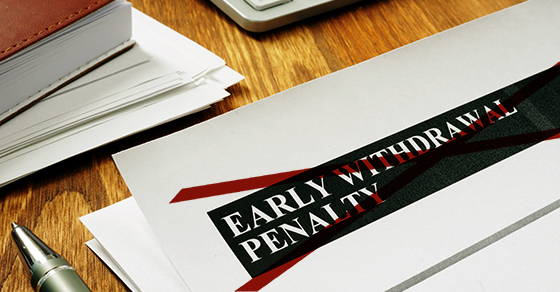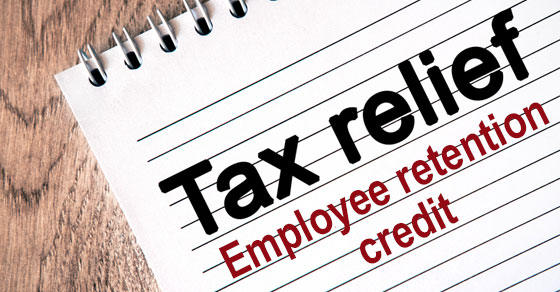Categories
- Employer Knowledge Base (17)
- Individual Taxes (365)
- News (31)
- Small Business Taxes (333)
Archives
- January 2025 (6)
- December 2024 (9)
- November 2024 (8)
- October 2024 (9)
- September 2024 (9)
- August 2024 (8)
- July 2024 (11)
- June 2024 (7)
- May 2024 (9)
- April 2024 (9)
- March 2024 (8)
- February 2024 (8)
- January 2024 (11)
- December 2023 (7)
- November 2023 (9)
- October 2023 (9)
- September 2023 (8)
- August 2023 (9)
- July 2023 (7)
- June 2023 (8)
- May 2023 (10)
- April 2023 (8)
- March 2023 (9)
- February 2023 (8)
- January 2023 (9)
- December 2022 (8)
- November 2022 (10)
- October 2022 (8)
- September 2022 (8)
- August 2022 (8)
- July 2022 (8)
- June 2022 (6)
- May 2022 (9)
- April 2022 (7)
- March 2022 (9)
- February 2022 (7)
- January 2022 (9)
- December 2021 (8)
- November 2021 (9)
- October 2021 (7)
- September 2021 (7)
- August 2021 (9)
- July 2021 (8)
- June 2021 (10)
- May 2021 (9)
- April 2021 (8)
- March 2021 (12)
- February 2021 (8)
- January 2021 (8)
- December 2020 (10)
- November 2020 (9)
- October 2020 (8)
- September 2020 (9)
- August 2020 (8)
- July 2020 (8)
- June 2020 (9)
- May 2020 (9)
- April 2020 (11)
- March 2020 (15)
- February 2020 (10)
- January 2020 (10)
- December 2019 (11)
- November 2019 (7)
- October 2019 (9)
- September 2019 (9)
- August 2019 (7)
- July 2019 (10)
- June 2019 (3)
- May 2019 (7)
- April 2019 (10)
- March 2019 (6)
- February 2019 (8)
- January 2019 (7)
- December 2018 (6)
- November 2018 (6)
- October 2018 (12)
- September 2018 (4)
- August 2018 (7)
- July 2018 (10)
- June 2018 (4)
- May 2018 (12)
- April 2018 (6)
- March 2018 (10)
- February 2018 (10)
- January 2018 (9)
- December 2017 (3)
- July 2016 (2)
- June 2016 (1)
- May 2016 (1)
- April 2016 (1)
- February 2016 (1)
- January 2016 (1)
- December 2015 (3)
- October 2015 (1)
- July 2015 (7)
- June 2015 (1)
Archive for April 2020 – Page 2
As we all try to keep ourselves, our loved ones, and our communities safe from the coronavirus (COVID-19) pandemic, you may be wondering about some of the recent tax changes that were part of a tax law passed on March 27.
The Coronavirus Aid, Relief, and Economic Security (CARES) Act contains a variety of relief, notably the “economic impact payments” that will be made to people under a certain income threshold. But the law also makes some changes to retirement plan rules and provides a new tax break for some people who contribute to charity.
Waiver of 10% early distribution penalty
IRAs and employer sponsored retirement plans are established to be long-term retirement planning accounts. As such, the IRS imposes a penalty tax of an additional 10% if funds are distributed before reaching age 59½. (However, there are some exceptions to this rule.)
Under the CARES Act, the additional 10% tax on early distributions from IRAs and defined contribution plans (such as 401(k) plans) is waived for distributions made between January 1 and December 31, 2020 by a person who (or whose family) is infected with COVID-19 or is economically harmed by it. Penalty-free distributions are limited to $100,000, and may, subject to guidelines, be re-contributed to the plan or IRA. Income arising from the distributions is spread out over three years unless the employee elects to turn down the spread-out.
Employers may amend defined contribution plans to provide for these distributions. Additionally, defined contribution plans are permitted additional flexibility in the amount and repayment terms of loans to employees who are qualified individuals.
Waiver of required distribution rules
Depending on when you were born, you generally must begin taking annual required minimum distributions (RMDs) from tax-favored retirement accounts — including traditional IRAs, SEP accounts and 401(k)s — when you reach age 70½ or 72. These distributions also are subject to federal and state income taxes. (However, you don’t need to take RMDs from Roth IRAs.)
Under the CARES Act, RMDs that otherwise would have to be made in 2020 from defined contribution plans and IRAs are waived. This includes distributions that would have been required by April 1, 2020, due to the account owner’s having turned age 70½ in 2019.
New charitable deduction tax breaks
The CARES Act makes significant liberalizations to the rules governing charitable deductions including:
- Individuals can claim a $300 “above-the-line” deduction for cash contributions made, generally, to public charities in 2020. This rule means that taxpayers claiming the standard deduction and not itemizing deductions can claim a limited charitable deduction.
- The limit on charitable deductions for individuals that is generally 60% of modified adjusted gross income (the contribution base) doesn’t apply to cash contributions made, generally, to public charities in 2020. Instead, an individual’s eligible contributions, reduced by other contributions, can be as much as 100% of the contribution base. No connection between the contributions and COVID-19 is required.
Far beyond
The CARES Act goes far beyond what is described here. The new law contains many different types of tax and financial relief meant to help individuals and businesses cope with the fallout.
© 2020
The recently enacted Coronavirus Aid, Relief, and Economic Security (CARES) Act provides a refundable payroll tax credit for 50% of wages paid by eligible employers to certain employees during the COVID-19 pandemic. The employee retention credit is available to employers, including nonprofit organizations, with operations that have been fully or partially suspended as a result of a government order limiting commerce, travel or group meetings.
The credit is also provided to employers who have experienced a greater than 50% reduction in quarterly receipts, measured on a year-over-year basis.
IRS issues FAQs
The IRS has now released FAQs about the credit. Here are some highlights.
How is the credit calculated? The credit is 50% of qualifying wages paid up to $10,000 in total. So the maximum credit for an eligible employer for qualified wages paid to any employee is $5,000.
Wages paid after March 12, 2020, and before Jan. 1, 2021, are eligible for the credit. Therefore, an employer may be able to claim it for qualified wages paid as early as March 13, 2020. Wages aren’t limited to cash payments, but also include part of the cost of employer-provided health care.
When is the operation of a business “partially suspended” for the purposes of the credit?The operation of a business is partially suspended if a government authority imposes restrictions by limiting commerce, travel or group meetings due to COVID-19 so that the business still continues but operates below its normal capacity.
Example: A state governor issues an executive order closing all restaurants and similar establishments to reduce the spread of COVID-19. However, the order allows establishments to provide food or beverages through carry-out, drive-through or delivery. This results in a partial suspension of businesses that provided sit-down service or other on-site eating facilities for customers prior to the executive order.
Is an employer required to pay qualified wages to its employees? No. The CARES Act doesn’t require employers to pay qualified wages.
Is a government employer or self-employed person eligible?No.Government employers aren’t eligible for the employee retention credit. Self-employed individuals also aren’t eligible for the credit for self-employment services or earnings.
Can an employer receive both the tax credits for the qualified leave wages under the Families First Coronavirus Response Act (FFCRA) and the employee retention credit under the CARES Act? Yes, but not for the same wages. The amount of qualified wages for which an employer can claim the employee retention credit doesn’t include the amount of qualified sick and family leave wages for which the employer received tax credits under the FFCRA.
Can an eligible employer receive both the employee retention credit and a loan under the Paycheck Protection Program? No. An employer can’t receive the employee retention credit if it receives a Small Business Interruption Loan under the Paycheck Protection Program, which is authorized under the CARES Act. So an employer that receives a Paycheck Protection loan shouldn’t claim the employee retention credit.
For more information
Here’s a link to more questions: https://bit.ly/2R8syZx . Contact us if you need assistance with tax or financial issues due to COVID-19.
© 2020
|
|
A new law signed by President Trump on March 27 provides a variety of tax and financial relief measures to help Americans during the coronavirus (COVID-19) pandemic. This article explains some of the tax relief for individuals in the Coronavirus Aid, Relief, and Economic Security (CARES) Act.
Individual cash payments
Under the new law, an eligible individual will receive a cash payment equal to the sum of: $1,200 ($2,400 for eligible married couples filing jointly) plus $500 for each qualifying child. Eligibility is based on adjusted gross income (AGI).
Individuals who have no income, as well as those whose income comes entirely from Social Security benefits, are also eligible for the payment.
The AGI thresholds will be based on 2019 tax returns, or 2018 returns if you haven’t yet filed your 2019 returns. For those who don’t qualify on their most recently filed tax returns, there may be another option to receive some money. An individual who isn’t an eligible individual for 2019 may be eligible for 2020. The IRS won’t send cash payments to him or her. Instead, the individual will be able to claim the credit when filing a 2020 return.
The income thresholds
The amount of the payment is reduced by 5% of AGI in excess of:
- $150,000 for a joint return,
- $112,500 for a head of household, and
- $75,000 for all other taxpayers.
But there is a ceiling that leaves some taxpayers ineligible for a payment. Under the rules, the payment is completely phased-out for a single filer with AGI exceeding $99,000 and for joint filers with no children with AGI exceeding $198,000. For a head of household with one child, the payment is completely phased out when AGI exceeds $146,500.
Most eligible individuals won’t have to take any action to receive a cash payment from the IRS. The payment may be made into a bank account if a taxpayer filed electronically and provided bank account information. Otherwise, the IRS will mail the payment to the last known address.
Other tax provisions
There are several other tax-related provisions in the CARES Act. For example, a distribution from a qualified retirement plan won’t be subject to the 10% additional tax if you’re under age 59 ½ — as long as the distribution is related to COVID-19. And the new law allows charitable deductions, beginning in 2020, for up $300 even if a taxpayer doesn’t itemize deductions.
Stay tuned
These are only a few of the tax breaks in the CARES Act. We’ll cover additional topics in coming weeks. In the meantime, please contact us if you have any questions about your situation.
© 2020
Sign up for our Newsletter!
"*" indicates required fields
News & Articles
Client Portal
Contact Us
© Wamhoff Accounting Services | All Rights Reserved | Privacy Policy | Terms of Use | 636-573-1250 | Email Us





